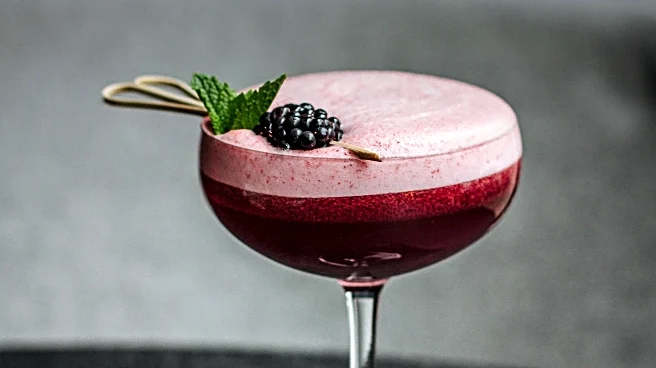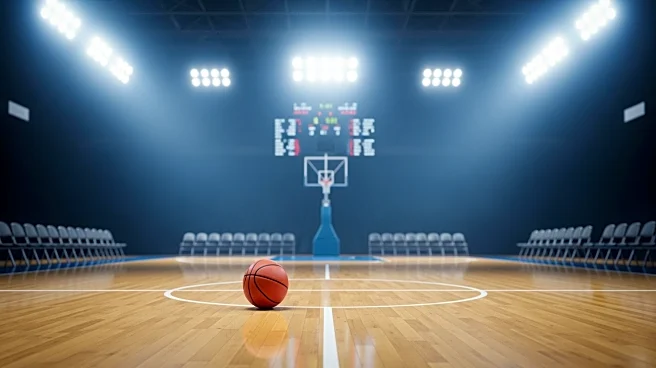What is the story about?
What's Happening?
Israel's cocktail scene has experienced a significant transformation, evolving from basic, sugary drinks to a sophisticated culture of mixology. This change is marked by the use of high-quality spirits, fresh ingredients, and innovative techniques by bartenders who now see themselves as artists. The shift began in the early 2000s with bars like 223 in Tel Aviv introducing more complex menus. The last decade has seen a rise in dedicated cocktail bars such as the Imperial Cocktail Bar and Bellboy, which have gained international recognition. These establishments not only serve drinks but also educate patrons through workshops, promoting a refined drinking culture. Menus have expanded to include a variety of modern and classic cocktails, low-alcohol spritzes, and mocktails, often featuring local produce and Mediterranean flavors.
Why It's Important?
The evolution of Israel's cocktail culture reflects broader trends in the global beverage industry, where consumers increasingly demand quality and innovation. This shift has economic implications, as bars invest in premium spirits and fresh ingredients, driving up costs but also enhancing the customer experience. The willingness of Israeli consumers to pay higher prices for quality cocktails indicates a growing appreciation for craftsmanship and creativity in the beverage sector. This trend could influence other markets, encouraging a focus on artisanal and locally sourced ingredients. Additionally, the emphasis on aesthetics and presentation aligns with the visual culture of social media, where visually appealing drinks can enhance a bar's reputation and attract more patrons.
What's Next?
As Israeli cocktail bars continue to innovate, they may further integrate local culinary traditions and ingredients, potentially setting new trends in the global cocktail scene. The focus on education and professional development for bartenders is likely to continue, fostering a new generation of skilled mixologists. This could lead to more international collaborations and recognition for Israeli bars. Additionally, the high cost of cocktails may prompt discussions about pricing strategies and accessibility, especially as the industry seeks to balance quality with affordability.
Beyond the Headlines
The rise of Israel's cocktail culture highlights the intersection of culinary arts and mixology, where bartenders draw inspiration from local and international cuisines. This trend underscores the importance of cultural exchange in the food and beverage industry, as global influences shape local practices. The emphasis on fresh, high-quality ingredients also raises questions about sustainability and sourcing, as bars strive to meet consumer demands while minimizing environmental impact.















